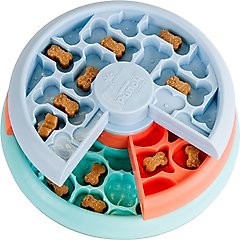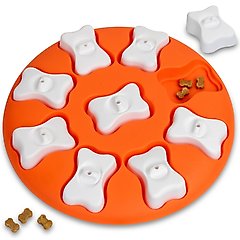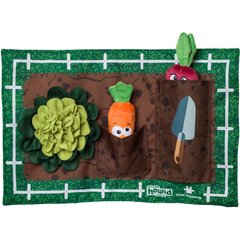How Long Do Dogs Live? (Plus, Tips for Maximizing Their Lifespan)

Photo by iStock.com/TheDogPhotographer
As any dog parent can attest, a home filled with wagging tails and eager wet noses is a haven of joy. Our beloved four-legged friends gift us with unconditional love that soothes the soul and charmingly goofy behavior that never fails to make us smile. Despite the occasional disappearing sock, we want our pups to be our loyal sidekicks forever, but just how long do dogs live?
The lifespan of a dog varies greatly based on several factors, with the most significant being their breed and size. Small dogs tend to live longer than large dogs, but size isn’t the only factor at play. We spoke to a vet expert about canine longevity, including how to help your dog live a longer, healthier life.
What Is the Average Lifespan of a Dog?
Domestic dogs live, on average, between 10 and 13 years.

iStock.com/SeventyFour
However, according to Dr. Bethany Hsia, DVM, co-founder of CodaPet in Fresno, California, some dogs live longer or shorter lives depending on several factors, including breed, size, genetics, nutrition, living conditions, exercise, veterinary care and overall health.
The longest living dog on record is a purebred Rafeiro do Alentejo, a medium breed, named Bobi, who lives in Portugal. He just celebrated his 31st birthday on May 11, 2023! That makes Bobi roughly 139 in human years. Unfortunately, this extraordinary lifespan isn’t typical.
Which Dog Breeds Live the Longest?

iStock.com/Capuski
Certain dog breeds are known for their longevity, often living well into their teens or even early twenties! Below are some of the dog breeds that live the longest (mostly small breeds) and their average lifespan:
- Shih Tzu: 10-18 years
- Chihuahua: 14-16 years
- Shiba Inu: 13-16 years
- Miniature Pinscher: 12-16 years
- Pomeranian: 12-16 years
- Dachshund: 12-16 years
- Australian Cattle Dog: 12-16 years
How Long Do Small Dog Breeds Live?
Smaller dog breeds tend to live longer than larger ones— with an impressive average lifespan of 10 to 15 years. Why?
“Smaller dogs simply don’t burn through energy as quickly as larger dogs do, which means their bodies don’t have to work as hard to maintain their health,” says Dr. Hsia. “Additionally, larger breeds tend to be more prone to certain end-of-life health issues like hip dysplasia and heart disease.”
Another hypothesis is that age-related health issues common in dogs, like incontinence and mobility problems, may pose greater challenges in larger breeds, prompting a decision for earlier euthanasia.
Lifespans of Popular Small Dog Breeds
- Chihuahua: 14-16 years
- Dachshund: 12-16 years
- Pomeranian: 12-16 years
- Jack Russell Terrier: 13-15 years
- Pug: 13-15 years
- Yorkshire Terrier: 11-15 years
- Beagle: 10-15 years
How Long Do Medium Dog Breeds Live?
Much like their size, medium dog breeds often fall in the middle of the canine longevity spectrum, aligning with the general average canine life expectancy of 10 to 13 years.
Lifespans of Popular Medium Dog Breeds
- Poodle: 10-18 years
- Australian Cattle Dog: 12-16 years
- Australian Shepherd: 12-15 years
- Border Collie: 12-15 years
- English Springer Spaniel: 12-14 years
- Cocker Spaniel: 10-14 years
- French Bulldog: 10-12 years
- English Bulldog: 8-10 years
How Long Do Large and Giant Dog Breeds Live?
Large and giant breeds might command the room with their imposing stature, but they often draw the short straw when it comes to longevity. Typically, these grand canines live between 8 and 12 years, fitting a whole lifetime’s worth of tail wags and affection into a shorter period.
Lifespans of Popular Large and Giant Dog Breeds
- Labrador Retriever: 12-14 years
- German Shepherd: 12-14 years
- Golden Retriever: 10-12 years
- Great Dane: 7-10 years
- Bernese Mountain Dog: 7-10 years
- Mastiff: 6-10 years
- Irish Wolfhound: 6-8 years
How Long Do Mixed Breeds Live?
Generally, mixed breed dogs, often affectionately referred to as “mutts,” live on average 14 years.
One thing to note, though, is that “mixed breed dogs can have longer lifespans than purebred dogs because mixed breeds are less likely to inherit genetic health problems that are commonplace in some purebred lines,” says Dr. Hsia.

iStock.com/svetikd
How To Help Your Dog Live Longer
While many factors affecting lifespan are out of your control (breed, genetics, etc.), there are several things you can do as a dog parent to increase your fur baby’s chances of living a long, healthy life. Here are a few of the top tips Dr. Hsia recommends.

iStock.com/Photographer and Illustrator
1. Provide a balanced diet
As with humans, a balanced, nutrient-rich diet is crucial to a dog’s overall health. Feed your dog high-quality dog food that’s appropriate for their age, breed and health status.
Obesity in dogs can lead to many health problems, so ensure you’re feeding your dog the correct portion sizes and limiting treats to no more than 10 percent of their total daily calories.
2. Engage in regular exercise
Physical activity is essential for your dog’s health.
Regular exercise helps maintain a healthy body weight, keeps their joints flexible and provides mental stimulation.
3. Get routine veterinary care
Regular check-ups can help catch potential health issues early. Ensure your dog is up-to-date on vaccinations and preventative medications for issues such as heartworm, fleas and ticks.
4. Stay on top of oral hygiene
Dental disease is a common issue in dogs and, if untreated, can lead to serious health problems like heart disease.
Regularly brushing your dog’s teeth, providing dental chews and getting professional cleanings as needed can help maintain oral health.
5. Provide mental stimulation
Mental stimulation is just as important as physical exercise. Toys, puzzle feeders, training sessions and social interactions can help keep your dog’s mind sharp.
Recommended Products
6. Avoid exposure to toxins
Be aware of items and substances that can be toxic to your dog, such as certain foods, plants and chemicals. Keep these out of your dog’s reach.
7. Get your dog spayed or neutered
Spaying or neutering your dog not only helps control the pet population but can also prevent certain types of diseases, like mammary and testicular cancer.
By properly caring for your dog, you do more than just prolong their life—you enhance the quality of the time you get to spend with them. Here are some games to play with your dog.






